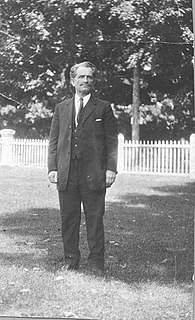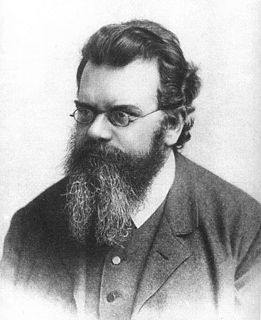A Quote by Richard P. Feynman
Often one postulates that a priori, all states are equally probable. This is not true in the world as we see it. This world is not correctly described by the physics which assumes this postulate.
Related Quotes
The true function of logic ... as applied to matters of experience ... is analytic rather than constructive; taken a priori, it shows the possibility of hitherto unsuspected alternatives more often than the impossibility of alternatives which seemed prima facie possible. Thus, while it liberates imagination as to what the world may be, it refuses to legislate as to what the world is
If we want to postulate a deity capable of engineering all the organized complexity in the world, either instantaneously or by guiding evolution, that deity must have been vastly complex in the first place. The creationist, whether a naive Bible-thumper or an educated bishop, simply postulates an already existing being of prodigious intelligence and complexity. If we are going to allow ourselves the luxury of postulating organized complexity without offering an explanation, we might as well make a job of it and simply postulate the existence of life as we know it!
It's true that the level of scientific knowledge among adults is very low, but that's not because there isn't a natural interest. I think most kids are fascinated by the natural world. I've often said that if you could quantify the mental power involved in all the dinosaur names correctly known and correctly spelled by 5-year-old kids in America, you could move any mountain on earth.
There is no science in this world like physics. Nothing comes close to the precision with which physics enables you to understand the world around you. It's the laws of physics that allow us to say exactly what time the sun is going to rise. What time the eclipse is going to begin. What time the eclipse is going to end.
The policy of the emperors and the senate, as far as it concerned religion, was happily seconded by the reflections of the enlightened, and by the habits of the superstitious, part of their subjects. The various modes of worship, which prevailed in the Roman world, were all considered by the people, as equally true; by the philosopher, as equally false; and by the magistrate, as equally useful. And thus toleration produced not only mutual indulgence, but even religious concord.
In some socialist states well-performed work is rewarded with moral stimulants instead of material ones. However, the moral stimulants cannot be explained by materialistic philosophy. It is the same case with the appeals for humanism, justice, equality, freedom, human rights, and so forth, which are all of religious origin. Certainly, everybody has the right to live as he thinks best, including the right not to be consistent with his own pattern. Still, to understand the world correctly, it is important to know the true origin of meaning and of the ideas ruling the world.
The first rule of world-building is available physics, which basically means that if you want it to feel real, it has to follow the same rules as this world, from gravity to how human behaviour works. If you have a fantasy element that doesn't obey the laws of physics, make sure that it has a fantasy explanation.



































